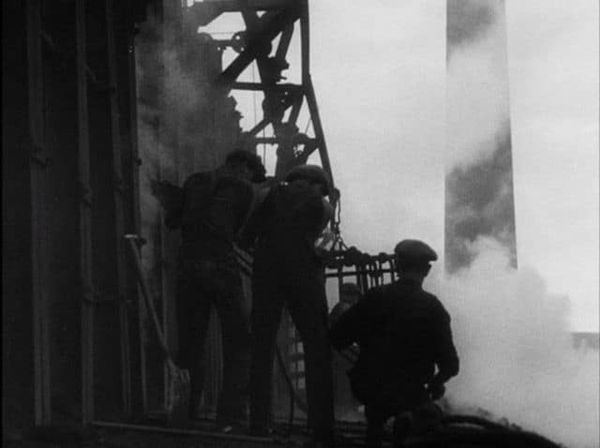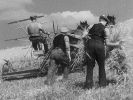Eye For Film >> Movies >> Eastern Valley (1937) Film Review
Eastern Valley
Reviewed by: Rebecca Naughten

One of a series of British documentaries made in the 1930s that centre on labour and social reform, Eastern Valley was made with the intention of raising funds for the Eastern Valley Subsistence Production Society - the co-operative organisation that is the focus of the film. Director Donald Alexander combines narrative commentary with the story of local man Dai Williams, who becomes a member of the society and acts as a proxy for the audience as he learns what the co-operative requires from him and what he can get out of being part of it.
The film begins by giving the historical background of the circumstances faced by this geographical region - having originally been a farming community, industrialisation changed not only the lives and working habits of the people but also the nature of the land that they live on. As whole communities grew dependent on the industries that transformed the valley - slum housing being haphazardly constructed near the iron and coal mines with slag heaps increasingly encroaching on domestic spaces, which in turn were subsiding due to the collieries underneath them - they were in a precarious position as demand declined in the aftermath of the depression suffered by the country following the Wall Street Crash. As concentrated pockets of unemployment grew in these industrial communities, the film observes that "thousands now have as their sole asset what nobody seems to require: labour".

The communal response shown in the film began in 1935 as a Quaker initiative within a small settlement on the eastern fringe of the Rhondda valleys. A number of men started to work as a co-operative with the aim of being able to supply their own families with food and clothing - eventually 400 men would be involved in working the land on the farm that they created, reusing skills learned in the mines to quarry the materials needed for building better housing, and allowing the community to subsist on its own labours rather than depending on outside industry. The use of a male voice choir on the soundtrack contributes to the presentation of this initiative as an uplifting experience for all involved.
Arguably the film is a slight affair in comparison to some other contemporaneous works, although perhaps some of the shortcomings seen by modern eyes are an unavoidable part of filmmaking in that era. In common with Today We Live the performances by non-professionals (the people onscreen are from the community) are noticeably self-conscious but the stiltedness of the Dai Williams scenes is at least in part the responsibility of a very on-the-nose script (which isn't credited). Eastern Valley nonetheless celebrates the resilience of working people and although it acknowledges that not all of the community's problems are solved by the co-operative, it offers the hope (much-needed at the time) that this experiment in self-sufficiency could provide a blueprint - and a temporary solution for unemployment - for other communities in similar circumstances.
Reviewed on: 19 Feb 2016














